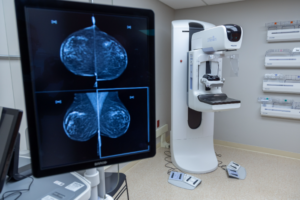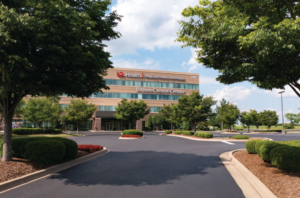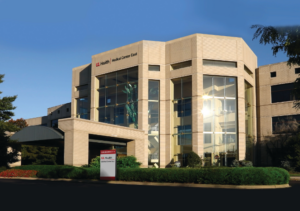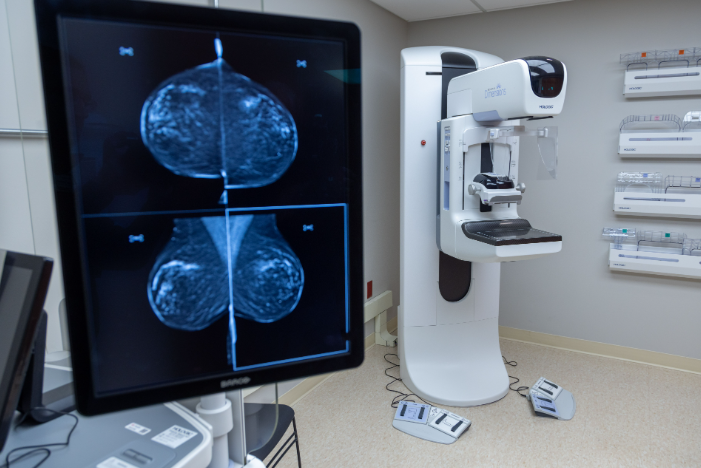Cancer is scary. No one wants to face a cancer diagnosis. It can be tempting to put off getting screened for cancer just so you don’t have to face the possibility of a diagnosis.
However, cancer screening should be considered an important part of your overall health, just like your annual visit to a primary care provider or keeping up with your medications. 
Knowing when to be screened for certain types of cancer is key. The guidelines and recommendations are different for each type of screening. Your primary care provider can help guide you on which cancer screenings are recommended for you and when to start. The guidelines below are a good place to start.
Why is early detection important? When cancers are caught in earlier stages they are easier to treat, and this gives you a far better chance of survival. Treatments are also less invasive when cancer is caught in earlier stages.
Most importantly, don’t wait until you have symptoms. Even if you don’t have symptoms or a family history, you could be at risk for cancer. Getting cancer screenings on a routine basis will ensure your doctor has a baseline to compare to, and this ensures early detection. Talk to your doctor regularly and be an advocate for your health.
Breast Cancer Screening
It’s recommended that women start getting annual mammograms at age 40 to screen for breast cancer. If you have a family history of breast or other cancers, talk to your doctor about getting a mammogram at an earlier age.
Mammograms are available at six UofL Health locations, including:
- UofL Health – Medical Center Northeast, off of Old Henry Road, opened a new breast care center earlier this year. To schedule a mammogram at Medical Center Northeast, call 502-210-4321.
- UofL Health – Medical Center East, on Dutchmans Lane, also offers a dedicated breast care center. To schedule an appointment at Medical Center East, call 502-259-6408.
- UofL Health also offers mammograms through the mobile screening unit.
For patients who have a family history of breast cancer and are interested in genetic testing, UofL Health – Brown Cancer Center also offers a High Risk Breast Clinic. To learn more, call 502-562-HOPE (4673).
Symptoms of breast cancer may include a new lump in the breast or armpit, thickening or swelling of the breast, irritation or dimpling of breast skin, redness or flaky skin in the nipple area, pain or pulling in of the nipple area, nipple discharge other than breast milk, including blood, change in the size or shape of the breast, and pain in any area of the breast.
Colorectal Cancer Screening
Screening for colorectal cancer can be done through a variety of tests. The United States Preventive Services Task Force (USPSTF) now recommends colorectal cancer screening in all adults starting at age 45 through 75.
The most effective screening is a colonoscopy, which only has to be done once every 10 years if you’re not considered high-risk. Colonoscopies are outpatient procedures and typically take a day for recovery. The procedure detects precancerous polyps (which are removed during the procedure) and cancer. A colonoscopy is performed by a gastroenterologist, general surgeon or colorectal surgeon. Colonoscopies are offered at UofL Health – Medical Center East and other locations throughout Louisville. To find a provider, visit uoflhealth.org/screenings.
Take-at-home stool tests are also an option, including FIT and Cologuard. These look for blood in the stool, or both blood and DNA changes suggestive of colorectal cancer. These can be done through a primary care provider.
Symptoms of colorectal cancer may include changes in bowel habits, blood in or on your stool, diarrhea, constipation or feeling that the bowel doesn’t empty all the way, abdominal pain, aches or cramps that don’t go away, and unexplained weight loss.
Lung Cancer Screening
Kentucky has one of the highest rates of lung cancer in the U.S., and lung cancer is the number-one cause of cancer deaths in the U.S. among both men and women. Yet,the American Lung Association reports that only 13% of those who are considered high-risk actually get screened for lung cancer.
Smoking is the number-one risk factor and accounts for 80 to 90% of lung cancer cases. The USPSTF recommends annual lung cancer screenings for adults aged 50 to 80 who have a pack-year smoking history of 20, and currently smoke or have quit smoking within the last 15 years. A pack-year is calculated by the number of years smoked multiplied by the number of packs smoked per day. For example: two packs per day x 10 years = 20 pack-years.
Lung cancer screening is done through a quick, low-dose CT scan, and because it captures scans of the whole torso, it can catch other cancers such as breast or colorectal cancers.
Low-dose CT lung cancer screening is available at eight UofL Health locations, including UofL Health – Medical Center East and UofL Health – Medical Center Northeast. Call 502-210-4497 to schedule your lung cancer screening at any of the locations.
Prostate Cancer Screening
Men should talk to their doctor about when to start screening for prostate cancer. Those with an average risk should start at age 50. However, certain groups such as those with a family history may need to start at age 40, and black men should start at age 45. Screening is done through a PSA blood test, which can be done at your primary care provider’s office. A digital rectal exam is also recommended.
Cancer Screening Program
The UofL Health – Brown Cancer Center Cancer Screening Program is here to help. If you have questions about cancer screening, need assistance with scheduling a screening, or would like to invite someone from the team to your community event to offer screening information, call 502-210-4497.






